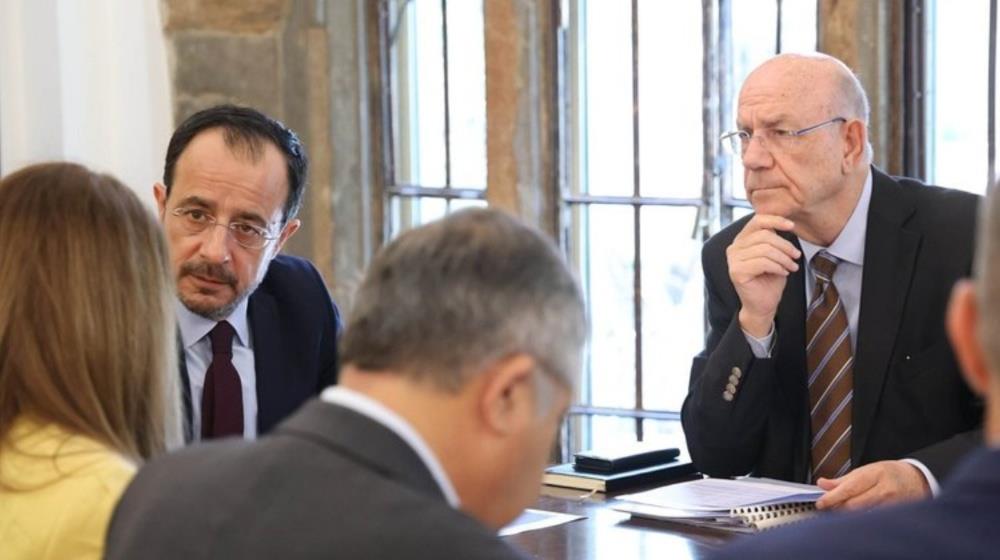A particularly ‘hot’ and highly decisive autumn is predicted in relation to the 'wager' of the tax reform being implemented on 1 January, 2026, with the President of the Republic, Nikos Christodoulides, putting pressure on all competent bodies and wanting to ensure that there will be no derailment from the set timetable.
This was also clear in the messages that Nikos Christodoulides made sure to send during the recent meeting on the tax reform at the Presidential Palace, which he convened precisely to be informed about the progress of the reform's implementation, the coordination between the competent services and to essentially set the roadmap for the next steps.
The general conclusion that emerged from the 3 June meeting regarding the progress of the process is that the entire project is on a very good track and that the goal of implementing the tax transformation on 1 January, 2026 is entirely feasible.
As for the next steps, and as InBusinessNews has been informed in this regard, a meeting of all the bodies involved should be held by 10 June to complete any pending technocratic matters that still exist, at the same time as the relevant draft laws are being drafted by the officers of the Tax Department.
A new broad meeting will follow on the 21st of the month at the Presidential Palace under Nikos Christodoulides, which will essentially mark the sealing of the work that has been done and the transition to the next stage, which is the sending of the bills to Parliament, with an intermediate stop of course at the Law Office of the Republic for the necessary legal review.
It is worth noting that the final report of the European expert on the content of the proposed tax reform was received in the last few days. The expert examined its compatibility with the broader EU framework, without any observation emerging that would make it problematic or jeopardise its smooth adoption by the Republic of Cyprus.
It is also extremely important that any suggestions recorded during the public consultation that took place last March, and those of them that were adopted, do not in any way change the philosophy of the tax reform, as presented at the end of last February by the experts of the University of Cyprus’ Economics Research Center (CypERC) and the members of the advisory committee.
It is recalled that with regard to the business environment, the upcoming tax transformation will, on the one hand, strengthen the competitiveness of Cypriot businesses and, on the other hand, maintain and further strengthen the attractiveness of Cyprus as an investment destination.
Based on the above, the tax reform bills had been expected to be sent to Parliament before the House closes for the summer holidays, however, given the short time remaining until then, the start of their discussion in the competent parliamentary committee, namely the Finance Committee, is scheduled for the resumption of Parliament's work in the autumn.
The effort that will be made at the political level - from the government's perspective - is to avoid a process of endless discussions, the only result of which will be an unnecessary delay in the introduction of a reform that is universally accepted as necessary and which is considered to be and indeed is extremely important for the redefinition of the economic model and the repositioning of the country on the global investment map.
It is within this context that President Christodoulides intends, as we are informed, to personally handle the political parties factor, attempting through individual meetings, contacts and discussions with their leaderships to ensure the greatest possible consensus and by extension the required majority that will allow the promotion and approval of the bills by the Plenary Assembly within the foreseen timetables.
That is, before the end of the year, so that the tax transformation will be a fact from 1 January, 2026.
This is a goal that, given the balance of power in Parliament, with DIKO, DEPA and EDEK being components of the government, but also with DISY's positive approach being considered almost certain, seems quite feasible regardless of the stance taken by the other parties, especially those in the opposition, led by AKEL.
The only footnote and asterisk placed on the above assessment is the upcoming parliamentary elections of 2026 and the risk that the tax reform will become a pawn and that the effort will be sacrificed, at least in terms of the timing of its implementation, on the altar of pre-election, petty political expediencies.
(Source: InBusinessNews)









